
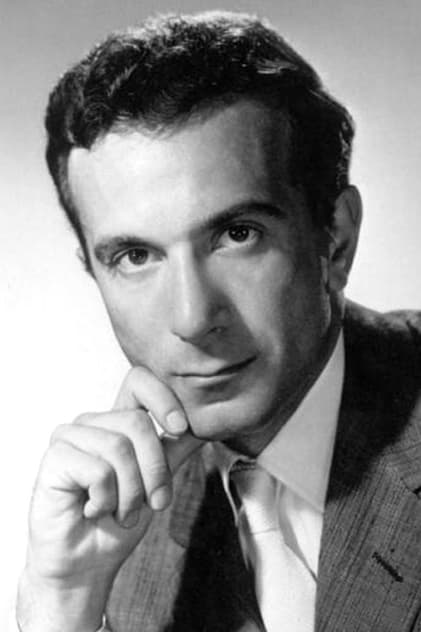
Roland Petit
Born: January 13, 1924
Died: July 10, 2011
in Villemonble, Seine-Saint-Denis, France
Died: July 10, 2011
in Villemonble, Seine-Saint-Denis, France
Roland Petit (13 January 1924 – 10 July 2011) was a French ballet company director, choreographer and dancer. He trained at the Paris Opera Ballet school, and became well known for his creative ballets.
The son of shoe designer Rose Repetto, Petit was born in Villemomble, near Paris. He trained at the Paris Opéra Ballet school under Gustave Ricaux and Serge Lifar and began to dance with the corps de ballet in 1940. He founded the Ballets des Champs-Élysées in 1945 and the Ballets de Paris in 1948, at Théâtre Marigny, with Zizi Jeanmaire as star dancer.
Petit collaborated with Constant Lambert (Ballabile - 1950), Henri Dutilleux (Le Loup - 1953), Serge Gainsbourg, Yves Saint-Laurent and César Baldaccini and participated in several French and American films. He returned to the Paris Opéra in 1965 to mount a production of Notre Dame de Paris (with music by Maurice Jarre). He continued to direct ballets for the largest theatres of France, Italy, Germany, Great Britain, Canada and Cuba.
In 1968, his ballet Turangalîla provoked a small revolution within the Paris Opéra. Four years later, in 1972, he founded the Ballet National de Marseille with the piece "Pink Floyd Ballet". He directed the Ballet National de Marseille for the next 26 years. For the décor of his ballets, he would work in close collaboration with the painter Jean Carzou (1907–2000), but also with other artists such as Max Ernst.
The creator of more than 50 ballets across all genres, he choreographed for a plethora of famed international dancers. He refused the free technical effects; he did not stop reinventing his style, language, and became a master in the arts of pas de deux and of narrative ballet, but he succeeded also in abstract ballets. He collaborated also with the nouveaux réalistes including Martial Raysse, Niki de Saint Phalle and Jean Tinguely.
Le jeune homme et la mort ("The Young Man and Death") of 1946 (libretto by Jean Cocteau) is considered his magnum opus and it is also his most well-known work; the choreography and the costumes are of astonishing modernity. In his 1949 ballet Carmen, he made an unusual use of the en dedans, while he gave a non-figurative treatment to Turangalîla.
Among the films to which he contributed are Symphonie en blanc by René Chanas and François Ardoin (1942 short film on history of dance) in which he appeared as a dancer; the choreography for the 1948 film Alice in Wonderland, The Glass Slipper in 1954, Anything Goes (with others) in 1956, and Black Tights as choreographer, writer, and dancer in 1960.
In 1994, he was awarded the Prix Benois de la Danse as choreographer.
In 1954, Petit married dancer Zizi Jeanmaire, who performed in a number of his works. His memoirs were published in 1993 under the title J'ai dansé sur les flots ("I Danced on the Waves"). He and Jeanmaire had one daughter, Valentine Petit, a dancer and actress.
Petit died in Geneva, Switzerland, aged 87, of leukemia in 2011.
Source: Article "Roland Petit" from Wikipedia in English, licensed under CC-BY-SA 3.0.
The son of shoe designer Rose Repetto, Petit was born in Villemomble, near Paris. He trained at the Paris Opéra Ballet school under Gustave Ricaux and Serge Lifar and began to dance with the corps de ballet in 1940. He founded the Ballets des Champs-Élysées in 1945 and the Ballets de Paris in 1948, at Théâtre Marigny, with Zizi Jeanmaire as star dancer.
Petit collaborated with Constant Lambert (Ballabile - 1950), Henri Dutilleux (Le Loup - 1953), Serge Gainsbourg, Yves Saint-Laurent and César Baldaccini and participated in several French and American films. He returned to the Paris Opéra in 1965 to mount a production of Notre Dame de Paris (with music by Maurice Jarre). He continued to direct ballets for the largest theatres of France, Italy, Germany, Great Britain, Canada and Cuba.
In 1968, his ballet Turangalîla provoked a small revolution within the Paris Opéra. Four years later, in 1972, he founded the Ballet National de Marseille with the piece "Pink Floyd Ballet". He directed the Ballet National de Marseille for the next 26 years. For the décor of his ballets, he would work in close collaboration with the painter Jean Carzou (1907–2000), but also with other artists such as Max Ernst.
The creator of more than 50 ballets across all genres, he choreographed for a plethora of famed international dancers. He refused the free technical effects; he did not stop reinventing his style, language, and became a master in the arts of pas de deux and of narrative ballet, but he succeeded also in abstract ballets. He collaborated also with the nouveaux réalistes including Martial Raysse, Niki de Saint Phalle and Jean Tinguely.
Le jeune homme et la mort ("The Young Man and Death") of 1946 (libretto by Jean Cocteau) is considered his magnum opus and it is also his most well-known work; the choreography and the costumes are of astonishing modernity. In his 1949 ballet Carmen, he made an unusual use of the en dedans, while he gave a non-figurative treatment to Turangalîla.
Among the films to which he contributed are Symphonie en blanc by René Chanas and François Ardoin (1942 short film on history of dance) in which he appeared as a dancer; the choreography for the 1948 film Alice in Wonderland, The Glass Slipper in 1954, Anything Goes (with others) in 1956, and Black Tights as choreographer, writer, and dancer in 1960.
In 1994, he was awarded the Prix Benois de la Danse as choreographer.
In 1954, Petit married dancer Zizi Jeanmaire, who performed in a number of his works. His memoirs were published in 1993 under the title J'ai dansé sur les flots ("I Danced on the Waves"). He and Jeanmaire had one daughter, Valentine Petit, a dancer and actress.
Petit died in Geneva, Switzerland, aged 87, of leukemia in 2011.
Source: Article "Roland Petit" from Wikipedia in English, licensed under CC-BY-SA 3.0.
Movies for Roland Petit...
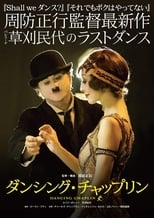
Title: Dancing Chaplin
Character: Self
Released: April 11, 2011
Type: Movie
The celebrated French choreographer Roland Petit had always had his eye on a film presentation of his ballet "Chaplin Dances", which premiered in 1991 and has been touring the world since, and he assigned this project to his trusted friend, Masayuki Suo, pioneer of the current revival of Japanese cinema. Drawing upon a wealth of worldwide ballet talent, Petit's ballet and Chaplin's films, Suo reinvented the work and has given it a new lease of life. The resulting piece is not simply a filmed record of the ballet but a union of the two media that reflects the meeting of the great talents of Chaplin, Petit and Suo



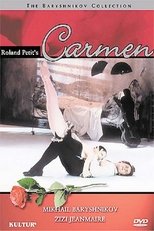


Title: Le Grand Échiquier
Character: Self - Main Guest
Released: January 12, 1972
Type: TV




Title: Great Performances
Character: Self
Released: January 28, 1971
Type: TV
The best in the performing arts from across America and around the world including a diverse programming portfolio of classical music, opera, popular song, musical theater, dance, drama, and performance documentaries.



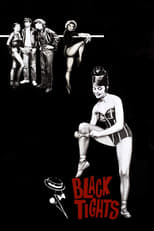
Title: Black Tights
Character: Cyrano / The Suitor / Don José
Released: September 7, 1961
Type: Movie
Lively scenes of Paris, all narrated by Maurice Chevalier, link together four dramatic ballet choreographies by Roland Petit: La Croqueuse de diamants (The Gold Digger), Cyrano de Bergerac, Deuil en 24 heures (A Merry Mourning), and Carmen.

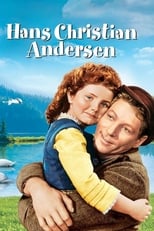
Title: Hans Christian Andersen
Character: The Prince in 'The Little Mermaid' Ballet
Released: December 19, 1952
Type: Movie
A small-town shoemaker with a knack for spinning yarns, Hans encounters happiness and heartbreak on his road to becoming a full-fledged writer.

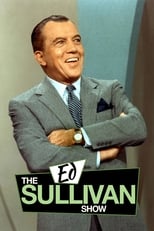
Title: The Ed Sullivan Show
Character: Self
Released: June 20, 1948
Type: TV
The Ed Sullivan Show is an American TV variety show that originally ran on CBS from Sunday June 20, 1948 to Sunday June 6, 1971, and was hosted by New York entertainment columnist Ed Sullivan. It was replaced in September 1971 by the CBS Sunday Night Movie, which ran only one season and was eventually replaced by other shows.
In 2002, The Ed Sullivan Show was ranked #15 on TV Guide's 50 Greatest TV Shows of All Time.


Title: The Ed Sullivan Show
Character: Self - ballet dancer
Released: June 20, 1948
Type: TV
The Ed Sullivan Show is an American TV variety show that originally ran on CBS from Sunday June 20, 1948 to Sunday June 6, 1971, and was hosted by New York entertainment columnist Ed Sullivan. It was replaced in September 1971 by the CBS Sunday Night Movie, which ran only one season and was eventually replaced by other shows.
In 2002, The Ed Sullivan Show was ranked #15 on TV Guide's 50 Greatest TV Shows of All Time.
